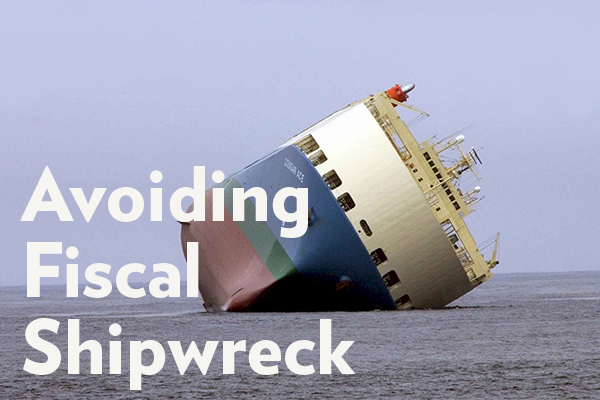Media

Rescuing Pennsylvania from Fiscal Shipwreck
The state’s shaky fiscal position is no secret. Lawmakers continue to negotiate behind closed doors to eliminate the current deficit and pay for new spending in the $32 billion 2017-18 budget.
And while it may be easier to borrow or raise taxes on a small segment of Pennsylvanians, tough work is needed to truly balance the state budget and stem the flow of red ink threatening to drown economic growth.
Here’s the good news: it’s not too late. Lawmakers still have time to rescue Pennsylvania. But it requires abandoning the approaches of the past that have created our current predicament. Perpetuating the status quo guarantees the state will sink deeper in debt, making it harder to reach the surface of balanced budgets and robust economic growth.
To keep Pennsylvania from sinking permanently and chart a course toward long-term prosperity, lawmakers must plug the holes on the fiscal ship.
First plug: welfare reform. The legislature should include transformative welfare reforms in the Welfare Code to help Pennsylvanians escape the cycle of poverty and move from dependency to self-sufficiency. These include reasonable work requirements, enhanced fraud and abuse protections, cost-saving waivers, and copays for wealthy families. The Department of Human Services (where most welfare programs are housed) is by far the most expensive and complicated department in the state. It’s long overdue for an overhaul that emphasizes the power of work over the dependency of welfare.
Second plug: redirect special interest spending. Pennsylvania spends billions of dollars above what’s authorized in the state’s General Fund Budget. This shadow budget includes programs ranging from corporate welfare (Race Horse Development Fund) to recreation facilities funding via the Keystone Recreation, Park and Conservation Fund. Redirecting just a fraction of these funds—on a permanent basis—can help balance the budget and provide a stable source of recurring revenue without tax hikes.
Third plug: liquor privatization. Getting government out of the booze business is not a long-term budget solution. However, it can serve as a short-term solution to give lawmakers time to adopt the other reforms necessary to responsibly balance the budget without imposing a greater tax burden on those who live and work in the state. Depending on the scope of privatization, the reforms currently on the table could raise anywhere from $1 million to more than $300 million. Full privatization, if enacted, could raise even more.
Fourth plug: Protect excellent teachers and expand school choice. While neither of these reforms provides immediate budget relief at the state level, both should be included in the state’s Education Code. In Pennsylvania, teacher seniority—rather than classroom effectiveness—can determine layoffs in the event of furloughs. Pennsylvania should scrap this harmful mandate and move to a merit-based system. Expansion of the Educational Improvement Tax Credit (EITC) is also necessary. Too many students are trapped in subpar schools, and their families are looking for a way out. By increasing the cap on the EITC, lawmakers can provide more quality educational options for families and lay the groundwork for future education reforms that don’t require annual increases in education spending.
Rescuing Pennsylvania from the current fiscal flood requires acknowledging a simple fact: many residents cannot afford to finance Harrisburg’s spending habits. Government exists to serve the people, not the other way around. State government should start acting accordingly.